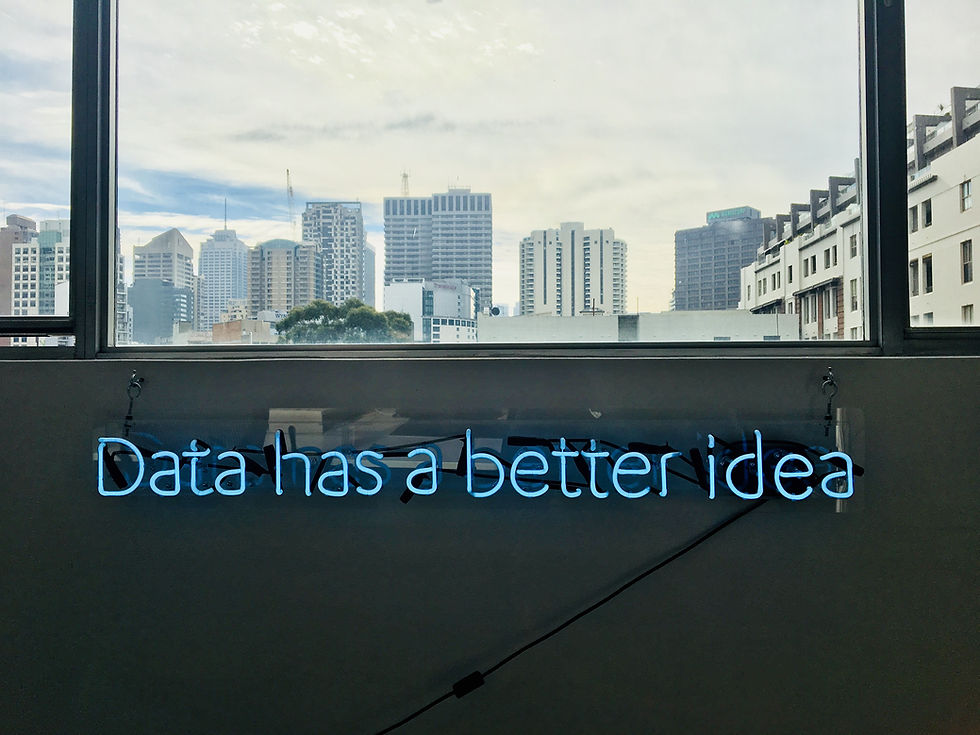How can you use big data to plan a class?
- DeeDee Perrott
- Jan 28, 2021
- 2 min read
Updated: Feb 14, 2021
Traditional classroom curricula consist of static learning plans that are applied consistently for all learners, regardless of their academic performance.
Big data systems help teachers to better understand human behavior and form new conclusions

Using the latest technology in big data analysis, educators are pinpointing weaknesses in the education system and identifying ways to improve them. This could mean having a better understanding of students or updating antiquated techniques. One thing is certain:
The clock is ticking on yesterday's chalkboards and report cards. But how exactly does this technology play into the modern classroom?
(Using Big Data to Improve Learning – TDAN.Com, n.d.)
Improving the learning process
When teachers receive information from big data analysis, they can identify repetitive patterns of failure or success. When planning a lesson, of course, the teacher can then try to eliminate failures and promote successes. The data may let teachers know a particular content may be too easy or too hard for students to learn, and then adjust the class accordingly (Reidenberg and Schaub 2018).
Improve Speed and Accuracy of Feedback.
Giving feedback to assignments can be a long and lengthy process if teachers have to get through every students’ work on paper. With the help of technology such as Learning Management Systems (LMS), teachers can now provide feedback for students almost instantaneously. Some LMS provide quiz functions where teachers can pre-set correct/incorrect answer feedback, so students don't have to wait to see why they got an answer right or wrong. Teachers can also go beyond simply recording their grades online, but the data collected could give insight into patterns of student's strengths, weaknesses and allow teachers to predict if a student may require extra assistance and when. In this way, teachers can change the way they conduct their class. When planning a class, teachers can spend time to first analyze which areas that more students are getting answers wrong, so that they can spend more time to go over them during class.
Predict When Students are Disengaged.
Big data models can predict when actions need to be taken for students, such as identifying when students are disengaging from online courses (Le et al., 2018). By knowing when students are becoming disengaged, teachers can try to find out why students are finding it uninteresting. This can be done by asking the students, or trying out different activities and testing out which ones improve student engagement. This helps teachers to understand their students more, and how to better plan out class activities so that their students can get more out of the class.
Personalized Learning
If we can know what kinds of questions students will ask, what they look for in a class, what doubts they have on a particular topic, their preferred content delivery format, and their learning style when working with information (visual, auditory, reading–writing, or kinesthetic), the process can be tailored to them (Ghani et al. 2018). When teachers plan for a class, they can have a clearer direction as to what works for their particular group of students.
This TEDx video is 12min51sec long. It’s useful in helping you to understand how to use data to personalize learning. If you are tight on time, we suggest you start the video at around 7minute.



Valid point Michael! And I also think there is a huge disconnect between the updates in the BC K-12 curriculum and university requirements.
The unfortunate thing I am seeing more often these days is students enrolling in higher level math and science courses and then dropping it for Foods, or another elective, because it’s just too hard. I feel like there needs to be more options for students to feel appropriately challenged.
Meg,
I think that because you and I are elective teachers we are able to be flexible and allow students to show their learning in various ways. Like you said, we can "meet them where they're at." Whether it be grade 9's or 12's, I always say "I don't care if you can't read a tape measure, as long as you're working towards being able to." But, when a student is clearly capable in shop, I actually to hold them to higher standards. Every student should be challenged, and I preach "best foot forward all the time" regardless of their skill set.
However, I could not imagine being an academic teacher and my final grade being crucial for a student…
Meg, I love your tie-in with the marshmallows! And I love to hear that Foods courses are still alive and well and that there are creative, adaptive teachers out there allowing students to find their way and help guide the direction of the classes. It's such a practical course with opportunities for constructivist learning and growth and development, not to mention empowering students and helping them develop practical life skills (and I will also get off my soap box).
I think you are right that parents play an important role in their childrens' education - engaged parents can make a big difference. As we've noted in our writings, some of the uses of big data in education have to d…
Again - great video!! So many pertinent points that I see at my school every day - teachers planning weeks/months in advance (even photocopying for the entire semester!!!!!), using the same assessment for every kid and always waiting until the end to put the marshmallow on. As a foods teacher I luckily have access to many marshmallows (physically and metaphorically)! I allow my student choice in all aspects of their learning to meet them where they’re at and ensure they are engaged and connected to their learning. But I have lots of room to improve.
I know that schools aren’t doing the best job preparing kids for the future, but there are small steps happening in the right direction. We…